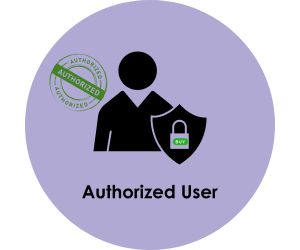Credit can often feel like a complex puzzle. One piece that frequently sparks curiosity is the concept of authorized user tradelines. But what exactly are they, and how do they fit into your financial picture? Let’s dive into the details to uncover the potential benefits, mechanics, and considerations of this credit-building strategy.
What Are Tradelines?
Tradelines refer to credit accounts listed on your credit report. These could include credit cards, loans, or other lines of credit. Each tradeline provides crucial information about your credit activity, including the account’s age, balance, and payment history.
Types of Tradelines
There are two primary types:
- Primary Tradelines: Accounts opened in your name.
- Authorized User Tradelines: Accounts where someone else adds you as an authorized user.
Authorized User Tradelines Defined
The Concept of Authorized Users
An authorized user is someone added to another person’s credit account, typically a credit card. As an authorized user, you gain access to the account’s credit history without the responsibility of repayment.
The Role of Tradelines in Credit Building
When linked to a well-maintained account, authorized user tradelines can help you establish or improve your credit score.
How Authorized User Tradelines Work
The Mechanics of Authorized User Tradelines
Adding an Authorized User
The primary account holder contacts their credit card issuer to add you. Once approved, their account activity reflects on your credit report.
How It Impacts Credit Scores
A positive payment history and low credit utilization ratio on the account can boost your credit score significantly.
The Benefits of Tradelines
Fast Credit Boost
If you’re new to credit or recovering from past mistakes, this method offers a quick solution.
Access to a Positive Credit History
A well-aged account with on-time payments adds credibility to your creditworthiness.
Potential Risks and Drawbacks
Credit Damage from the Primary User
Any negative activity, like late payments or high balances, can harm your score.
Ethical Considerations
Using tradelines purely to manipulate credit can raise ethical concerns.
How to Use Authorized User Tradelines Effectively
Choosing the Right Tradelines
Evaluating Credit History
Opt for accounts with consistent on-time payments and a long history.
Understanding Age and Utilization
Older accounts with low utilization ratios are most beneficial.
Steps to Add Authorized User Tradelines
Communication with the Primary Account Holder
Ensure mutual understanding of expectations and responsibilities.
Documentation Required
Most issuers require basic personal information, such as your name and Social Security number.
Monitoring and Managing Your Credit
Track your credit reports regularly to confirm accurate reporting.
Alternatives to Tradelines
Building Credit Through Secured Credit Cards
Deposit-backed cards provide a safe way to establish credit.
Applying for a Credit Builder Loan
These loans are designed to help improve credit while saving money.
Becoming a Joint Account Holder
Unlike being an authorized, joint holders share account responsibilities.
Are Tradelines Right for You?
Who Can Benefit the Most?
- Individuals with limited or no credit history.
- Those seeking a temporary credit boost for loans or mortgages.
Situations to Avoid Using Authorized User Tradelines
- If the primary user has a history of poor credit management.
- When relying solely on tradelines to solve credit issues.
Legal and Ethical Considerations
Is Buying Tradelines Legal?
While not illegal, purchasing tradelines can attract scrutiny and is frowned upon by some lenders.
Ethical Concerns Surrounding Tradelines
The practice of “renting” credit can be controversial and may not align with everyone’s moral compass.
Conclusion
Authorized tradelines offer a unique pathway to improve credit, but they’re not a magic fix. Carefully weigh the benefits and risks, choose reputable partners, and monitor your credit responsibly. Whether you decide to use them or explore alternatives, understanding their workings empowers you to make informed financial decisions.



